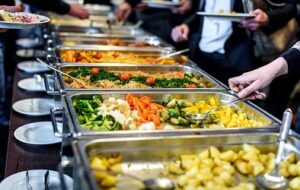 . . . and he wanted people to take it and thank him for it” (I Timothy 4:3b Worldwide English trans.).
. . . and he wanted people to take it and thank him for it” (I Timothy 4:3b Worldwide English trans.).
My husband is fond of quoting Martin Luther’s description of humankind as a drunkard on a horse: he goes down the road for awhile and then falls off and rolls into the ditch on the right. Then he staggers back up on the horse and stays on for awhile until he falls off again and this time rolls into the ditch on the left. He spends very little time in the saddle actually going down the middle of the road.
This trend has only continued. So just this week both NPR and Popular Science magazine have run stories about it. I love the title of the PS article: “Striving for the Perfect Diet Is Making Us Sick: Man Cannot Live on Kale Alone” (Feb. 2015 issue, p. 24). The article includes a new eating disorder term: “orthorexia,” an overemphasis on eating correctly that is driven by a fear of being unhealthy. People can become paralyzed by the possibility of eating something that isn’t “allowed,” obsessing over every bite and isolating themselves from social events because they’re afraid of what may be served or putting the poor waiter at the restaurant through an inquisition about the source of every ingredient.
Another fad that has been around for awhile but is only gaining in popularity: “cleansing” or “detox” diets. As the nice sensible people interviewed on NPR yesterday pointed out, you already have superb mechanisms in place: your kidneys and liver. No diet or magic ingredient is going to do any more cleansing than these organs are already doing. The one big step that most of us need to take is to cut down on added sugar. The “average” American, whoever that may be, eats 22 teaspoons of added sugar per day, and that’s way too much. But don’t go overboard and think you can’t eat, say, ketchup, because it has sugar in it. How much ketchup can you possibly eat? Be sensible and don’t drive yourself crazy. The two stories pleading for a sensible middle ground can be accessed at these two links: on the non-validity of de-toxes and cleanses and on the need to cut down on sugar.
I’m sure I’ll have more to say on this topic, but perhaps I’ve gone on long enough for now.